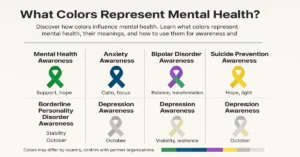Key Intake
Q1: When to go to hospital allergic reaction?
Go to the hospital right away if you have trouble breathing, swelling of the face or throat, dizziness, or a fast heartbeat. These are signs of anaphylaxis, a life-threatening reaction. Use your EpiPen if prescribed and call 911 immediately.
Q2: Do I still go to the ER after using an EpiPen?
Yes, always, ER monitoring is critical due to biphasic risk.
Q3: Can antihistamines replace epinephrine in emergencies?
No, they don’t reverse anaphylaxis. Only epinephrine works fast enough.
Q4: How to spot anaphylaxis in a child?
Look for drooling, hoarse voice, trouble breathing, vomiting after exposure.
Table of Contents
Quick Answer
Go to the hospital for an allergic reaction if you notice breathing trouble, throat swelling, dizziness, or after using an epinephrine auto-injector.
Even if symptoms improve, ER monitoring is needed due to biphasic risk.
Introduction
Sudden swelling, a rash that spreads too fast, or a child gasping for air, allergic reactions don’t wait. In the U.S., over 200,000 people visit the ER each year for food-related allergic reactions (FARE). The American College of Allergy, Asthma & Immunology warns that delayed hospital care after anaphylaxis doubles the risk of complications. That’s why understanding when to go to hospital allergic reaction is more than a medical detail, it’s a decision that can save lives for parents, caregivers, and anyone living with severe allergies.
When Mild Becomes Emergency

Most hives or itching clear with antihistamines. But shortness of breath, swelling of lips/tongue, or rapid heartbeat means anaphylaxis is likely. That’s the line between home care and hospital care.
- Mild: Localized rash, mild itching, watery eyes
- Emergency: Breathing difficulty, throat tightness, fainting, widespread hives
Bottom line: If symptoms spread fast or involve breathing, skip urgent care head to the ER.
Children and Allergy Red Flags

Kids can’t always explain what’s happening. Watch for:
- Sudden hoarseness or weak cry
- Pulling at the tongue or throat
- Drooling with swallowing trouble
- Vomiting after allergen exposure
Call 911 right away if a child shows these signs. Pediatric ER teams are trained to manage airway swelling in seconds.
Epinephrine Auto-Injector: What’s Next?
Using an EpiPen or Auvi-Q is step one, not the last step. The National Institute of Allergy and Infectious Diseases notes that 20% of cases rebound within 8 hours (biphasic anaphylaxis). That’s why hospitals keep patients for observation.
- Always go to the ER after epinephrine use
- Bring used injector with you
- Inform staff of allergen exposure
Antihistamine vs. Epinephrine
Many first-timers grab Benadryl. Truth is: antihistamines only ease surface symptoms. They do not stop airway swelling or shock. Epinephrine is the only life-saving first line for severe reactions.
Think of it this way:
- Antihistamines = comfort care
- Epinephrine = survival care
Urgent Care vs. ER Decisions

Urgent care is fine for:
- Local hives
- Mild itching
- Non-progressive rash
But ER is mandatory for:
- Airway swelling
- Trouble breathing
- Vomiting with dizziness
- Post-epinephrine care
For Food Service & Caregivers
If you’re a teacher, coach, or restaurant worker, liability and safety go hand-in-hand. Follow these rules:
- Call 911 immediately for suspected anaphylaxis
- Do not wait for antihistamines to work
- Document allergen exposure and actions taken
Tip: Many states offer Good Samaritan protection if you act in good faith during an allergy emergency.
Prevention and Escalation
For chronic allergy patients, hospital trips can be minimized with:
- Updated action plans from an allergist
- Carrying two auto-injectors at all times
- Regularly checking expiration dates
- Knowing biphasic risk even hours later
Sources
- Mayo Clinic: Anaphylaxis: Diagnosis & Treatment
- NHS: Anaphylaxis: Emergency Guidance
- Cleveland Clinic: Anaphylaxis Causes, Symptoms & Treatment
- American College of Allergy, Asthma & Immunology (ACAAI): Clinical Guidelines on Severe Allergic Reactions
- Resuscitation Council UK: Emergency Treatment of Anaphylaxis: Official Guidelines
Conclusion
Allergic reactions can shift from mild to life-threatening in minutes, and hesitation is the real danger. The truth is, knowing when to go to hospital allergic reaction is about recognizing red-flag symptoms early, swelling in the throat, breathing trouble, dizziness, or rapid rash spread. Acting fast, calling 911, and using an epinephrine auto-injector when needed gives the best chance of recovery. For families, caregivers, and allergy patients, preparation isn’t panic, it’s protection.
Author Bio
Laura Jensen, RN, Allergy Care Specialist with an experience of 12 years of emergency nursing experience helping families manage severe allergic reactions.
For more information you can watch, what Dr. Heller (DO Emergency Medicine Portsmouth Regional Hospital) say about when to go to hospital allergic reaction?











